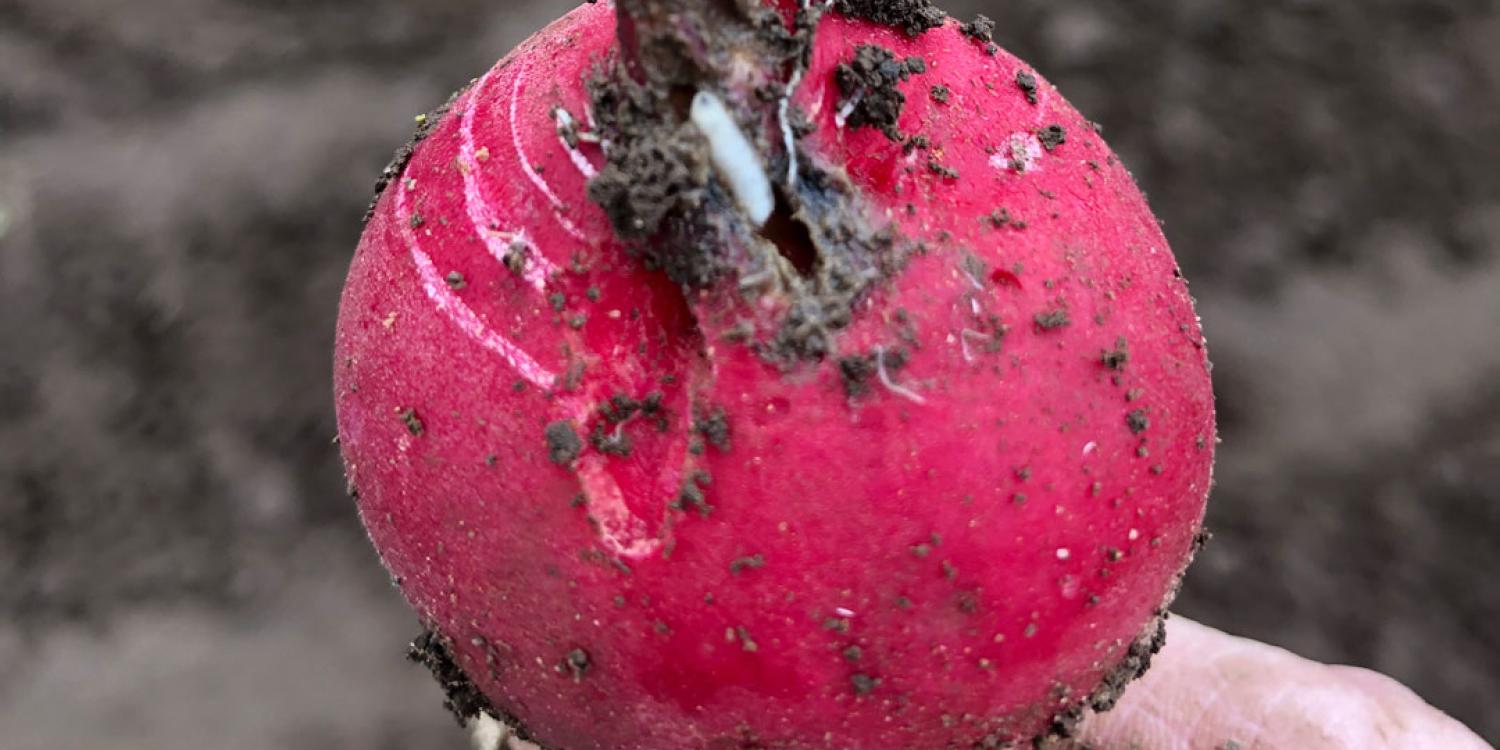
In the Willamette Valley, cabbage maggot devastates a wide variety of crops, causing substantial economic loss for many farmers. Most often, farmers used to control the damaging insect with chlorpyrifos insecticides. In 2020, the Oregon Department of Agriculture issued a rule phasing out most uses of chlorpyrifos in response to concerns over the chemical’s neurological impacts on humans. In February 2022, the U.S. Environmental Protection Agency banned the use of chlorpyrifos to treat food crops.
The adult fly (Delia radicum) lays eggs on any species in the Brassicaceae family (broccoli, cauliflower, cabbage, kale and many others) as well as root crops like radish, turnip and rutabaga.
If planted when cabbage maggots are at their least active, crops like broccoli and cauliflower, which cover an estimated 300,000 acres annually in Oregon, can withstand some damage but may have lower yields. A recent industry survey reports damage is greatest in root crops, with 100% of growers reporting damage and 44% of growers estimating yield losses at between 10-25%.
To control the insect, chlorpyrifos was applied with other products as often as every 10-14 days at an approximate cost of up to $200 an acre. Currently, the pesticide that growers would use to replace chlorpyrifos costs up to 10 times more.
In response, Kristine Buckland, Oregon State University Extension vegetable and specialty seed crop specialist at the North Willamette Research and Extension Center and associate professor in the College of Agricultural Sciences, conducted four insecticide trials of more than 20 alternative treatments with colleagues at Cornell University and the National Minor Crop Pesticide Registration Program The researchers determined efficacy treatments with active ingredients and/or delivery methods that would allow for rotation of products, the preferred way to apply pesticides to reduce the possibility of insects developing resistance.
Building on the efficacy research, Buckland and Dani Lightle, Extension specialty crops pesticide registration research leader and assistant professor in the College of Agricultural Sciences, collaborated to develop a new protocol for cabbage maggot control. The two Extension faculty were funded by a $219,000 Oregon Department of Agriculture Specialty Crop Block Grant to continue to investigate new, innovative control methods for all three life stages of the pest.
Twenty growers and industry professionals are working with Buckland and Lightle on current crop management and how to apply insect degree-day modeling at the first such workshop in a decade. By 2023, they anticipate at least three new approaches for controlling cabbage maggot for on-farm use. The goal is to provide control options that follow IPM principles for growers in the vegetable and seed industry after the full phase-out of chlorpyrifos.